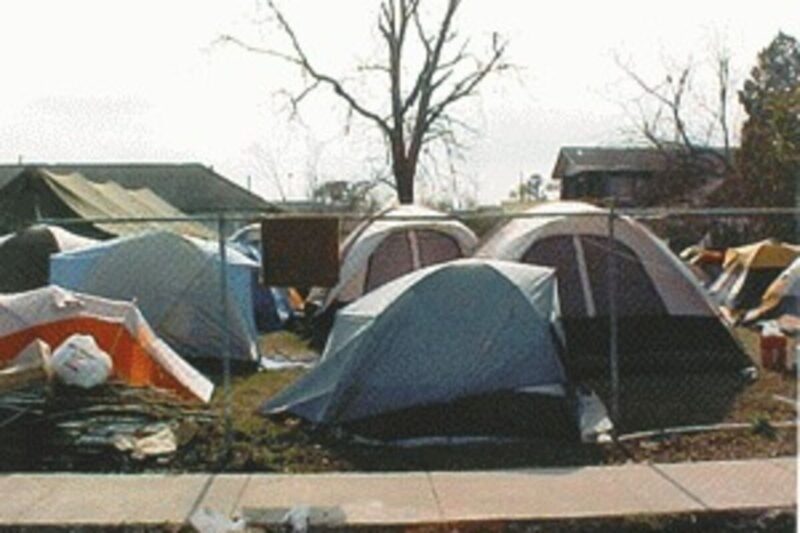Sean C. Morgan
Of The New Era
Dwayne Clark, 49, is continuing to deliver trailers to areas ravaged by hurricanes Katrina and Rita, venturing deeper and deeper into territory that still has not recovered from the disaster seven months ago.
And the recovery appears to be bogged down in a bottleneck of bureaucratic paperwork, Clark said, although officials are doing their best in the situation.
Clark has made about six round trips in a fleet of 15 trucks delivering travel trailers for the Federal Emergency Management Agency. The trailers, transported from La Grande, are used to house hurricane victims.
On his last trip, he traveled into New Orleans where the levee broke during Hurricane Katrina.
“We spent two days down there trying to help,” he said. Because paperwork hasn’t been completed, “a lot of trailers are there, but they don’t have them all set up.”
Clark and his fellow drivers did not venture far into the devastated areas early on. Since then, they have.
The Six Flags amusement park outside of New Orleans is not even standing, Clark said. “I’ve seen houses in the middle of the road. I’ve seen boats in the middle of the road, a 150-foot barge on a housing tract, cars and boats through houses, a brand new bank stripped….
“There’s no doubt in my mind, they’re looking at two years just to clean up the debris.”
Driving through the ravaged areas, he has seen destroyed houses with stacks of debris out front and a FEMA trailer in the driveway, Clark said. In 40- to 60-degree weather, residents are living in tent cities.
“If they were to have another storm, they’d be done,” Clark said. “If you travel through there at night, you’ll know because there’s no power.”
Major cities may have a little power, Clark said, while smaller communities have none at all, seven months later.
Stopping at well-known restaurants is incredible, Clark said. The restaurants serve bottled water.
Clark talked to a security guard who said there are still people who haven’t been found and probably never will be found.
“I’ve seen some pretty serious devastation in my lifetime,” Clark said. “But it’s pretty incredible when you can go for miles and miles…. I talked to one guy who said they found his car in the next county….
“It’s a lot worse than they make it sound.”
At the same time, FEMA has thousands of trailers that aren’t being used yet because paperwork is incomplete, Clark said.
“It’s pretty sad seeing people with no place to live,” he said.
The sheer numbers are what’s making it difficult, FEMA having to process addresses for the residents, making sure they have power and sewer, he said. “They’re doing the best they can locally to try to improve.”
Trucks are hauling debris out every day, Clark said.
Some residents complain that the help is not coming fast enough, he said. “My thoughts on it, we should be able to take care of our own backyard. We’re overseas spending millions, and we should be spending it here.”
He said he doesn’t understand how people who can do something about it can sleep while residents of Louisiana and Mississippi still don’t have power or homes.
People volunteer to go help, and it will take two to three weeks for FEMA to figure out if it can use the volunteers, Clark said. “How long does it take to actually get food to the people?”
On the brighter side, he said, it feels good to see trailers he hauled to homeless families being used.
He said he plans to look into going to work hauling locally when he returns to the disaster area with his next trailer in a couple of weeks.





